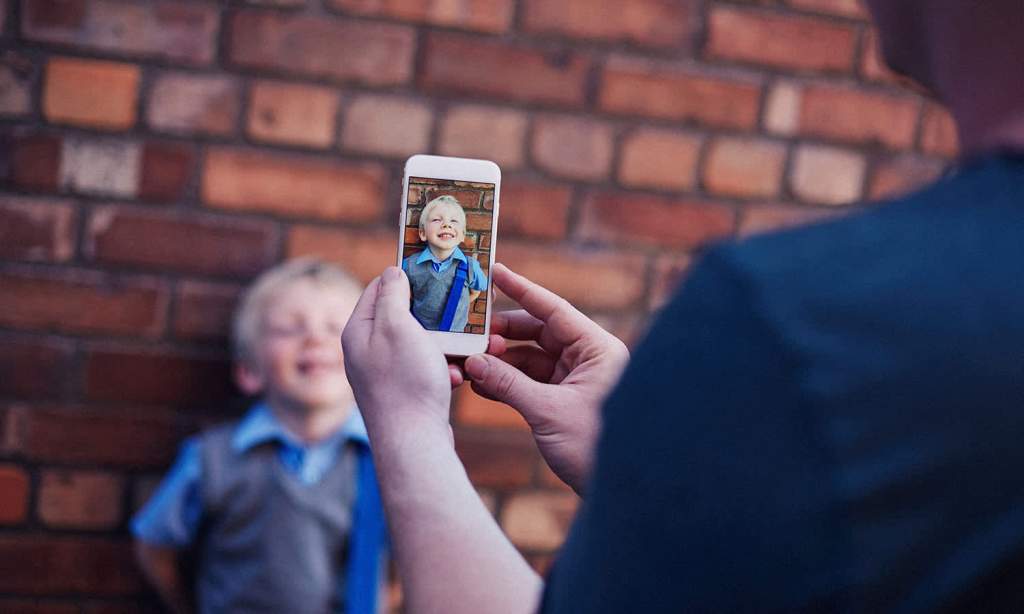It’s the start of another school year and those with little ones are undergoing the annual ritual of taking the back to school pictures – making memories and charting the startlingly rapid growth of their kids.
Unfortunately, the Australian Federal Police have urged parents not to share those photos online as, they warn, it could make them more vulnerable to predators.
In a statement, the AFP said that parents who wish to do so should make sure that their privacy settings on social media are on strict settings, only allowing those who you know to see what you post.
Photos of kids in school uniform can reveal a lot about their identities to anyone with sinister intentions and there are sadly people out there who are looking to exploit proud parents and the photos they share of their kids.
AFP Commander for the AFP-led Australian Centre to Counter Child Exploitation (ACCCE), Hilda Sirec, said that it’s good to be mindful of online safety message as students across the country return to school.
“The first day of school is a treasured milestone for parents and carers and a happy memory for many families,” Sirec said.
“Parents and carers can continue to take those wonderful happy snaps and post them online. However, we do urge people who are sharing those images to make sure they’re using secure privacy settings on social media and only sharing them with people they know and trust”.
The AFP have said that child protection investigators regularly seize images of children in the collections of online child sex offenders.
“We have seen some offenders go to great lengths to gain access to children and in some instances, online grooming has started with information that parents and carers have shared online,” Sirec said.
“The more information available about a child online, the easier it can be for offenders to build a profile to groom them, or even to groom parents in a bid to access information about their children.
“You wouldn’t walk up to a stranger and give them a photo album of your children and tell them their names or location.
“We all need to remember that in the digital age, that is the equivalent of posting information and images of children online without the appropriate safeguards.”
The AFP also advises parents to avoid posting images of students at the front of homes that can identify a street or street number.
It’s Not Always About Grooming
While the abuse of children by strangers is a significant problem in Australia, thankfully it’s not very common according to the latest statistics. While the AFP are right to be concerned about this issue, there are more common problems.
The first is to do with your child’s identify. Scammers online can use the information posted about them to steal their identities, potentially causing a whole range of problems from extortion to theft. Future employers may look back at their social media content and use that to judge whether or not they are a suitable candidate and there are consent issues to consider.
While no one likes to be told not to share images of their babies or their kids, 2022 is a very different world to the one that we all grew up in. Having a full and extensive catalogue of all of your experiences before the age of 18 online for anyone and everyone to see is quite different to a box of printed photos in your home.
Kids may well reach an understanding and an age where they realise the implications of this and resent the fact that their life has been catalogued in this way. It’s important to remember that the internet is forever and that once a photo is on there, there’s little you can do to remove it if it gets into the wrong hands.
Tips for Keeping Your Kids Safe
Research conducted by the ACCCE in 2020 revealed that only around half of parents talk to their children about online safety while 50% don’t know what to do to keep their kids safe online. Having these conversations early and regularly is important, as long as its done in a respectful and non-controlling way. You can also follow the below tips:
- When posting pictures of your kids online, make sure to keep your child’s personal information, including their full name and age, private.
- Make sure that the background of photos or videos don’t give away your address or location and don’t post your location or ‘check in’ when uploading pictures.
- Avoid posting photos in school uniform.
- Only share images of your children with people you know and trust.
- For community accounts, consider having a closed group with approved members and ensure you have strong privacy settings in place.
- Of course, if you believe that a child is in imminent danger, you should call the police on 000 immediately.
If your child is experiencing issues online, it is essential that you collect evidence by taking screenshots or photos of the content. Once you have collected your evidence, block and report on the app, site or platform where the issue occurred.
Online child sexual exploitation can be reported to the ACCCE or by calling Crime stoppers on 1800 333 000.
Read more stories from The Latch and subscribe to our email newsletter.

